Inside: Learn the most important (and overlooked) reason why kids won’t listen, focus or sit still. Plus, get 25+ ways to help your kids build these important life skills.
My son climbed to the top of the monkey bars and snaked across them from above. He’s not strong enough to swing across arm-to-arm, so his solution is to catapult his legs up, pull his entire body on top of the bars, and slither across.
A mom walked up to me. “Your son’s on top of the monkey bars. Just thought I’d let you know so he doesn’t fall and get hurt.”
Shortly after, two kids walked up and said, “He’s on top of the monkey bars! He’s going to get hurt.”
Related: 2 Year Old Not Listening? Try This Remarkable Tip
It happened in other situations, too.
When I took my two kids to a Merry-Go-Round, and let them have it as I sat on a picnic bench watching from afar, parents and kids alike voiced their concerns.
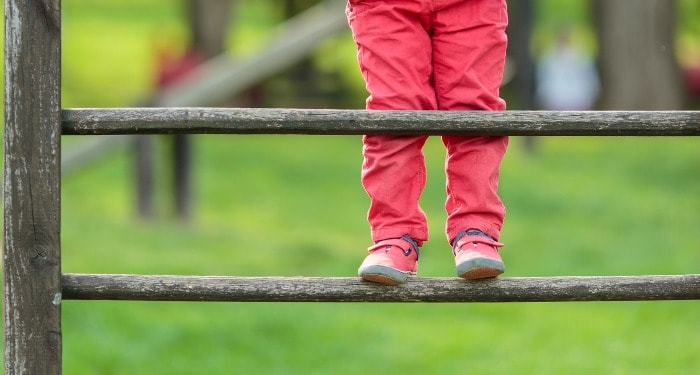
“Someone is going to break their arm over there!”
“She’s going to fall and get hurt.”
“He’s spinning, and he’s going to get sick.”
Same thing when people saw my kids hanging upside down (per their own doing) for several minutes at a time.
“All the blood is rushing to his head. It’s gonna make him sick.”
“That’s too dangerous!”
Or when people saw my kids twisting and spinning around on a swing.
“Someone is going to get their fingers pinched!”
“That’s not safe. Put your bottom on the swing.”
The bigger issue occurred — for other parents — when my kids did these things and their children wanted to join in the “dangerous” activity. This is a common thread I see at playgrounds and when talking with parents I work with through parent coaching.
Related: How to Build Listening, Improve Cooperation Using a Printable Daily Schedule for Kids
Here’s the problem: Why kids won’t listen.
Children’s ability to move and play are being restricted more than ever. We are trying to protect them by saying “No climbing,” “No running,” “No spinning,” “That’s too dangerous,” and “Get down from there!”
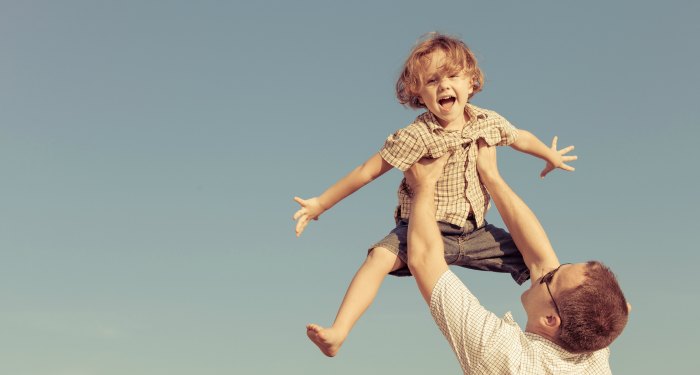
Disclosure: Post contains affiliate links, which means if you make a purchase, at no extra cost to you, I may earn a small commission.
However, research shows that the drastic decline in “risky” outdoor play in kids is creating behavior problems. By constantly hovering over kids, restricting their movement, and diminishing their time to play, we are causing more harm than good.
“According the to American Academy of Pediatrics (2013), a recent study show that the average child spends eight hours a day in front of screens (television, video games, computers, smart phones, and so on). Older children and adolescents are spending an average of eleven hours a day in front of screens.” (Hanscom 2016).
That’s a huge amount of time spent in front of screens, which provide little to no proprioceptive or vestibular input (which I’ll talk about in a second). In prior generations, this time was spent outdoors or in play.
This is the important part.
In order for kids to listen, focus and learn to sit still for a period of time, they must develop both proprioception and vestibular sense. The most critical time to develop a child’s proprioception and vestibular sense is before age six.
With all the time spent in front of screens and telling kids to sit still, avoid climbing, and stop jumping, it’s not surprising why kids won’t listen.
Proprioception is what tells you where your body parts are without having to look at them. This is the sense that helps you make sense of gravity. It’s the reason you can switch from the gas pedal to the brake without looking at your feet, or bring popcorn to your mouth without taking your eyes off the movie screen.
Without properly developed proprioception, kids can push too hard during tag, fall out their seat at the dinner table, or trip while walking up stairs. (You’ll see this a lot in toddlers as they develop proprioception, but you should see it less and less in kids ages four, five, six and beyond).
Vestibular sense provides information about where the body is in relation to its surroundings. This is the sense that helps you understand balance, and it connects with all the other senses.
When the vestibular system does not develop properly all other senses will struggle to function properly. Without a strong vestibular sense, kids will have no choice but to fidget, get frustrated, experience more falls and aggression, get too close to people when talking, and struggle with focusing and listening. Because they literally cannot help it.
Related: How to Handle Back Talk Like a Parenting Warrior
Helping your kids.
In order for kids to learn to listen, focus and follow directions as they grow, they need to develop proprioception and vestibular sense by experiencing many physical challenges during childhood.
Without it, kids can’t pay attention in school because they are too distracted by their own bodies. Putting clothes on, trying new foods, and finishing homework become insurmountable tasks when kids don’t have a strong vestibular sense or well-developed proprioception.
Study after study shows that kids today desperately need more physical activity. “John Ratey, an associate professor of psychiatry at Harvard, suggests that people think of exercise as medication for ADHD. Even very light physical activity improves mood and cognitive performance by triggering the brain to release dopamine and serotonin, similar to the way that stimulant medications like Adderall do.” (source)
Angela J. Hanscom, author of Balanced and Barefoot and pediatric occupational therapist, recommends getting your kids outside as much as possible. Ideally, kids of all ages should get at least three hours of free outdoor play daily.
While I’m not certain if her age-based recommended times are realistic or not, they are as follows:
- Toddlers → At least five to eight hours of active play per day, preferably outdoors
- Preschoolers → At least five to eight hours of active play per day, preferably outdoors.
- School age → At least four to five hours of physical activity and outdoor play.
- Adolescents → Physical activity three to four hours a day.
Here are a few ways to support your child’s vestibular sense:
- Spinning in circles.
- Using a Merry-Go-Round.
- Rolling down a hill.
- Spinning on a swing.
- Going upside down.
- Climbing trees.
- Rocking.
- Jumping rope.
- Summersaults or cartwheels.
- Using monkey bars.
- Skating.
- Going backwards.
- Swimming.
- Dancing.
- Wheel-barrel walks.
Here are a few ways to support your child’s proprioceptive input:
- Carrying or lifting boxes.
- Pushing or pulling a wagon.
- Build a fort.
- Rake leaves.
- Shovel snow.
- Pick up and put down heavy sticks.
- Dig in the dirt.
- Carry buckets of sand or water.
- Give hugs.
- Knead playdoh
- Jump on a trampoline.
- Chewing on something
- Squeezing a stress ball
- Playing Tug-O-War with a stretchy band
Related Posts:
Let the kids live “dangerously.”
As a parent, there are many times I’ve cringed and closed my eyes to avoid watching my child spin in circles, slither across the monkey bars or swing high into the air. It’s only natural to worry that something will happen.
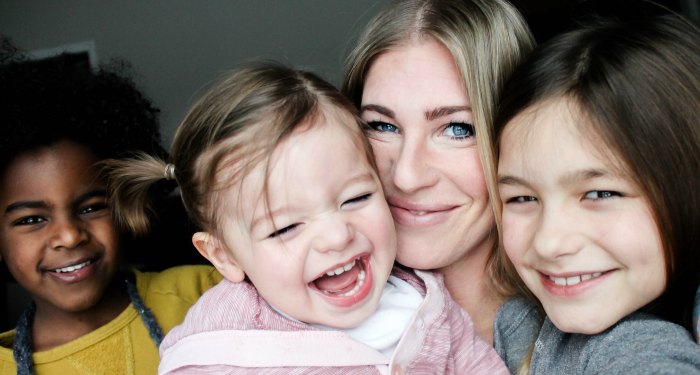
But the truth is kids know what they need. Children with healthy neurological systems naturally seek out the sensory input they need on their own. They do this without thinking about it.
When they jump, swing, spin, pick up rocks or dig in the dirt, kids are doing exactly what they need. They aren’t intentionally doing it to get hurt, act rambunctiously, worry you or get messy.
They are doing it to help themselves become safer, calmer and happier kids.
Like Dr. Tina Bryson says, “You can trust development.” Her words have never been more true.
Download your free printable.
Chances are you won’t remember all the ways to support your child’s vestibular and proprioceptive development. This printable simplifies it!
Here’s a sneak preview…
- Download the checklist. Join 37,000+ parents who receive my weekly-ish tips and ideas and get the printable delivered straight to you inbox.
- Print. Any paper will do the trick, but cardstock
would be ideal.
- Place it on your refrigerator. Check off the things as you go and don’t forget a thing!
Many of these ideas come from a life-changing parenting book called Balanced and Barefoot: How Unrestricted Outdoor Play Makes for Strong, Confident and Capable Children.
Want more on parenting?
- Two Words That Will Tame Your Child’s Temper Tantrum – Every Time
- 4 Year Old Talking Back? Stop the Sass and Create Peace With Two Techniques
- How to Get Your Child to Follow a Routine Without Reminders
- 3 Things Every Parent of a Strong-Willed Toddler Should Know
I've created a free email series just for you! If you are struggling with teaching your child to listen, this series will help transform your parenting. Yes, really. I've seen my proven strategies work time and time again for parents. I know it can work for you too.
After taking my free email series, you will:
- Learn simple, yet highly effective listening strategies
- Experience a stronger connection with your child
- Enjoy more peaceful parenting days
- Gain more cooperation from your child

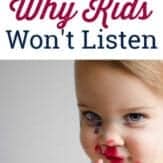
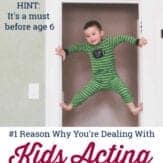
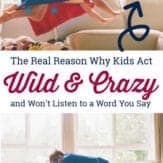
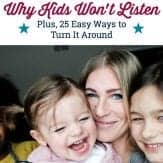
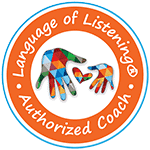
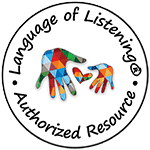
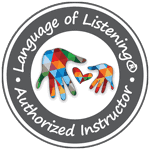
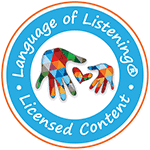








I was raised by a hovercraft mom. As a result I am trip and fall regularly. When I was 28 I tripped on nothing and broke my leg so badly that after 2 surgeries I will be deformed for life. As a parent I refuse to be bullied into harassing my children. They run too fast and jump off of things that are too tall. They get themselves into the weirdest predicaments and then they get out. I have had helpful on lookers say “told you so” but in the end they can tell me all they want, just leave my kids alone. One time we were at a home improvement store and my kids were crawling around the cart, quietly so I could focus and not disturbing anyone else. An employee walked by and made a passive aggressive comment on my lack of parenting which I ignored. 5 mins later a manager chased me down to explain that my children need to stop because HE cares about them and would hate to see them get hurt. I was already annoyed about the passive aggressive employee so I unleashed my annoyance on the manager. He walked away ashamed but we never went back. I am tired of normal child play being viewed as poor parenting and I’m tired of this see something, say something culture. Just because you don’t like something doesn’t mean that it’s bad or harmful.
I’m all for play, but I fully understand when workers in a store need to talk to parents about not letting them play in a store or in some equipment, it’s not the time or the play. They are responsible for the safety of everyone through their store so I don’t believe the are necessarily being passive aggressive to stop your child having fun. Take them to a park instead after shopping.
Agree with the part about screen time but not so much about risky/dangerous play – without quotes. Sometimes in some areas falls from height are truly dangerous. You can close your eyes or look away but when you child does fall and sustain an injury, with a possibility of permanent damage (seen it happen to my friend’s child), nothing will be the same again. Yet you can be careful (and that’s being responsible to all other kids at the playground too) and develop all those skills over time. There are more reasons to why kids don’t listen. This reason by itself may or may not be contributing to the issue at all